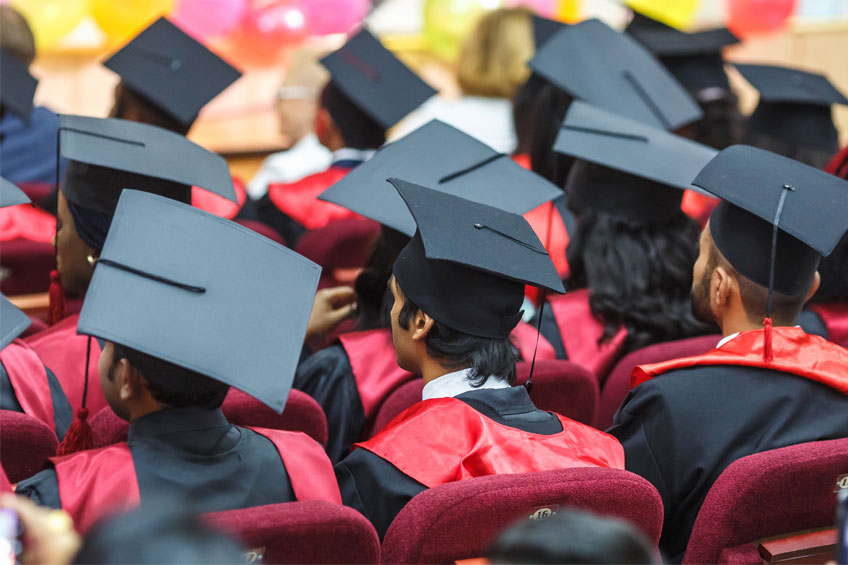If you are a recently graduated international student here in the United States, there are an abundance of employment options available to you. You can choose to return to your country of origin following graduation, and (if you’re lucky) may even be able to stay in the United States. With roughly 140,000 employment-based visas made available for immigrants each year, F-1 Visa students who desire to continue to work (and live) in the U.S. can do so.
That said, with the immigration system as complex as it is, it is always best to work with an experienced immigration attorney, or, at very least, to read about your options moving forward. In the post, learn more about your employment options for post-graduation life, and find out what options are available to you.
How can I apply for an employment based visa?
There are many different methods for applying for an employment-based visa, depending on the visa in which you are interested. For example, with an H1-B visa, you must demonstrate that you have a sponsor. With an E1 visa, you have to establish that the trading enterprise aligns with the law’s requirements. Or, as in the case of an R-1 visa, your (future) employer will need to verify that they are a tax-exempt organization.
It goes without saying that there are several different employment visa options available once you graduate, and they all vary considerably depending on your home country and the type of work you want to do. These employment options include:
Optional Practical Training
Optional Practical Training is a program that allows you to use your F1 visa to work in the United Status. This program lets you apply the knowledge earned in your education to a ‘practical work environment,’ meaning that the work itself must be directly related to your major or field of study. This can be part- or full-time work and it can take place anywhere within the United States.
You can apply for this program during the academic year, during periods of vacation from schooling, or after you have completed your education. It is also typically good for a maximum of 12 months following graduation.
H1-B Visa (Specialty Occupation)
This visa allows you to stay in the United States in order to gain work experience that is relevant to your degree. With an H1-B visa you have temporary worker status. These visas can be offered by employers who are in need of services from a person who has a distinct specialty and also holds at least a four-year degree.
In most instances, an H1-B visa is good for three years, but it can be extended to up to 6 years. This maximum time period of 6 years applies even if you work for multiple employers. It is not tied to the employer, but rather to you as the visa holder. Also keep in mind that this visa is ‘employment-based’ meaning that the status ends immediately once the employment has been terminated, however, you can attain ‘permanent resident status’ (enabling you to remain in the United States indefinitely) on an H1-B by attaining a suitable sponsorship position from your H1-B sponsor.
H-3 Visa (Trainee)
An H-3 Visa is for nonimmigrants who want to enter the United States to receive training from a company in the United States, however certain restrictions apply: For one, you cannot receive this visa if you are coming from medical training or a graduate program. You also cannot receive the training in your home country (only in the United States). You also cannot transfer this visa to an H-1B status.
E-1/E-2 Visa (Treaty Investor/ Treaty Trader)
There are some countries that have entered into treaties with the United States. Those treaties allow citizens of those countries to obtain treaty investor/treaty trader visas, or E-1/E-2 visas.
An E-1 visa has the requirement that a minimum of 51% of the company’s trade has to be between the United States and that treaty county. An E-2 visa requires that there be sizeable investment made into an existing or new enterprise. Executives, managers, and essential employees are eligible for these particular visas. These are typically granted for a time period of 5 years in increments of 2 years, however extensions are possible.
R-1 Visa (Religious Worker)
This visa program is for ministers or those working in a religious occupation. You must be able to demonstrate that you have been part of a religious denomination for at least 2 years before you apply. The visa is originally good for 3 years with the possibility to extend it for two additional years. Keep in mind that for R-1 visas, your United States employer must demonstrate that they have a tax-exempt status.
Learn More About Your Post-Graduation Options
If you have additional questions related to employment based visa options for post-graduation, reach out to Pride Immigration. Working with trusted and experienced immigration lawyers can ensure you not only make the right choice for you, but that you understand the application process and take the right steps to secure the employment you deserve.
Beeraj Patel, Esq.
Latest posts by Beeraj Patel, Esq. (see all)
- Impact of Life Changes on Green Card Applications - June 16, 2025
- Common K1 Visa Criminal Background Issues - June 2, 2025
- Does Social Media Have an Impact on Your K1 Visa Application? - May 19, 2025
